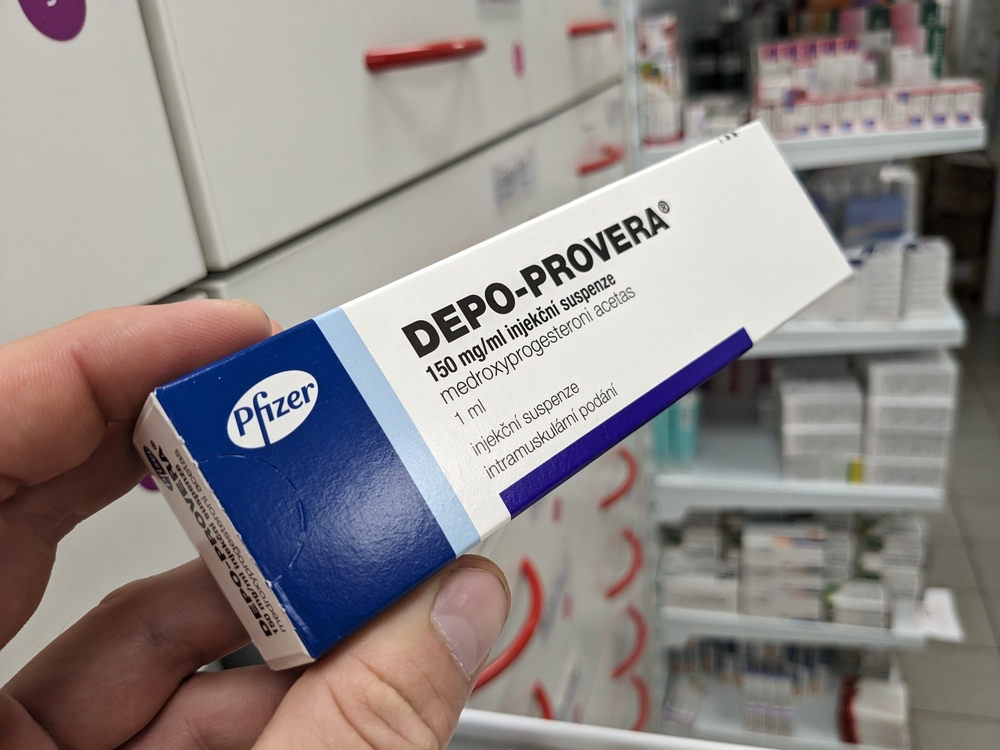
What Is Depo-Provera?
Depo-Provera is a widely used contraceptive marketed under the brand names Depo-Provera and the lower-dose Depo-SubQ Provera 104. Depo-Provera is a hormonal birth control injection approved by the U.S. Food and Drug Administration (FDA) in 1992 and inhibits ovulation by thickening cervical mucus and thinning the uterine lining. It is typically into the arm or the buttocks every 12 weeks. Depo-Provera is highly effective and may also be prescribed for managing other conditions, such as:
- Cancer treatment
- Chronic pelvic pain
- Contraception
- Endometriosis
- Hirsutism
- Hormonal imbalances
- Menstrual disorders
- Postpartum bleeding
- Reduce cancer risk
- Reduce ovarian cysts
- Uterine fibroids
In recent years, Depo-Provera has come under scrutiny after research linked the drug’s ingredients to an increased risk of meningioma brain tumors.
Don’t Delay – Apply for Legal Help Today!
Contact us TodayHow Does Depo-Provera Cause Brain Tumors?
Medical research indicates that long-term use of medroxyprogesterone acetate (MPA), the active ingredient in Depo-Provera, causes more than five times the risk for brain tumors. MPA binds to progesterone receptors in the protective layers surrounding the brain and spinal cord, triggering abnormal cell growth that may contribute to the development of meningiomas.
With such increased risks and approximately 74 million users globally, Depo-Provera may be considered a potentially significant public health concern.
What Are the Symptoms of Meningioma Brain Tumors?
Symptoms of meningioma vary depending on the size and location of the tumor and include:
- Blurred or double vision
- Confusion or disorientation
- Difficult speaking
- Headaches, particularly in the morning
- Hearing loss
- Loss of balance or vertigo
- Loss of smell
- Memory loss
- Seizures
- Tinnitus (ringing in the ears)
- Weakness or numbness in limbs
What Is a Depo-Provera Lawsuit?
Depo-Provera is linked to an increased risk of meningioma and other brain tumors. Early indications reveal that Pfizer knew or should have known about the risks but failed to warn healthcare professionals or consumers. Women who have received at least two Depo-Provera injections may qualify for compensation if they have been diagnosed with any of the following conditions:
- Benign or malignant brain tumors
- Meningioma
- Pseudotumor cerebri
We are investigating claims for women who have been administered Depo-Provera injections and subsequently been diagnosed with brain tumors that could have been avoided with adequate warnings about the risk. As more information about the risks associated with Depo-Provera becomes available, we anticipate an increase in lawsuits against Pfizer in the coming years.
Contact Us Today to Get Started
We are committed to assisting women who have brain tumors after receiving Depo-Prover. If you have been diagnosed with meningioma or other brain tumors, complete our online form or call us today to learn how we can help.
Call us TodayAm I Eligible for a Depo-Provera Lawsuit?
To be eligible for a Depo-Provera lawsuit, you must meet the following criteria:
- Must have been administered at least two injections of brand-name Depo-Provera, depo-SubQ Provera, or an authorized generic version.
- Must be diagnosed with meningioma or other brain tumors after using Depo-Provera.
- The length of time Depo-Provera or its generic version was used, the time since the last dose, and the timing of the diagnosis of meningioma or other brain tumors.
Your information will be kept confidential.
Disclaimer: Depo-Provera litigation is just beginning, and no settlements or verdicts have been awarded thus far.